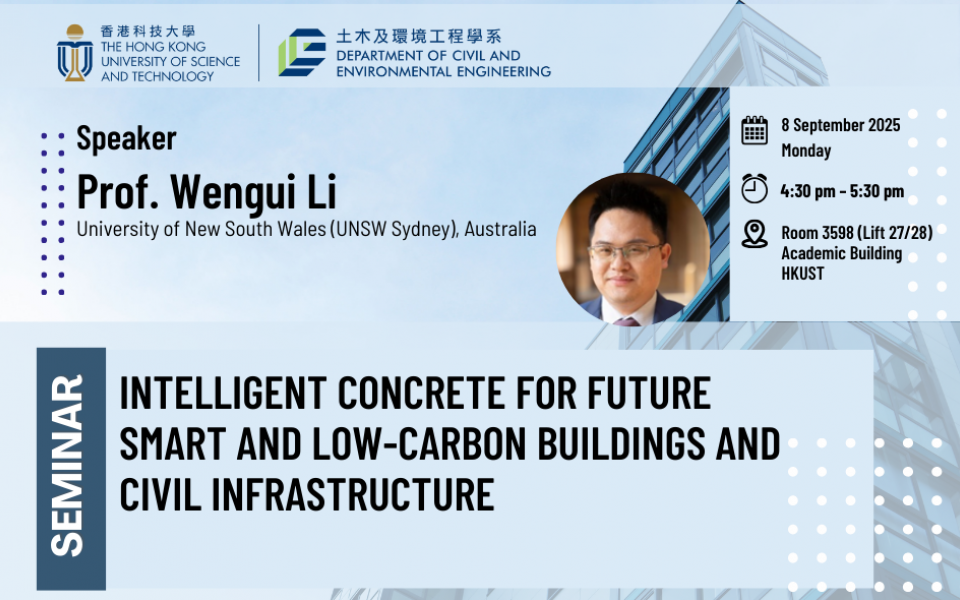Civil Engineering Departmental Seminar - Intelligent Concrete for Future Smart and Low-carbon Buildings and Civil Infrastructure
Supporting the below United Nations Sustainable Development Goals:支持以下聯合國可持續發展目標:支持以下联合国可持续发展目标:
Intelligent Concrete for Future Smart and Low-carbon Buildings and Civil Infrastructure
Conductive carbon nanomaterials have been extensively developed for smart cementitious composites to achieve multifunctionality. The electrical resistivity and piezoresistivity of cementitious composites with either single or hybrid carbon materials are comprehensively analyzed and compared in terms of efficiency and self-sensing mechanisms. Furthermore, existing theoretical modeling studies have been reviewed, revealing that many factors influencing electrical and piezoresistive behaviors—such as water content and nanomaterial agglomeration—have not yet been adequately considered. Although several previous studies have demonstrated the potential of conductive cementitious composites for self-sensing and triboelectric nanogenerator applications, further research is still needed to develop sustainable and economical manufacturing processes. Finally, the challenges and perspectives related to self-sensing stability, data acquisition systems, and sensor configurations are discussed, along with potential solutions for smart infrastructure. This work aims to support researchers and civil engineers in developing sustainable and functional nanomaterial-based concrete for next-generation smart and low-carbon buildings and civil infrastructure.
Dr Wengui Li is currently a Scientia Associate Professor in the School of Civil and Environmental Engineering at the University of New South Wales (UNSW Sydney), Australia. In 2015, he was awarded the ARC Discovery Early Career Researcher Award (DECRA). In 2023, he received the ARC Future Fellowship. His main research interests include multifunctional smart concrete ( e.g., self-sensing, self-healing, self-powering, hydrophobic, photocatalytic, renewable energy harvesting and storage – triboelectric nanogenerators, supercapacitors, and batteries), concrete nanotechnology (modification and characterization), solid waste recovery for sustainable concrete, and CO2 mineralisation and sequestration. He currently serves as Special Issues Editor for Construction and Building Materials, Associate Editor for Sustainable Materials and Technologies and ASCE’s Journal of Materials in Civil Engineering, and an editorial board member for Case Studies in Construction Materials, International Journal of Mining Science and Technology, and npj Materials Sustainability. In Google Scholar, he has published two academic books and 276 papers, with over 20,310 citations and an H-index of 73. In 2023, he was awarded the International Excellence Fellowship by the Karlsruhe Institute of Technology (KIT), Germany. In 2024, he received the JSPS Invitational Fellowships for Research in Japan at the University of Tokyo. In 2025, he was awarded the Humboldt Research Fellowship for Experienced Researchers at Technische Universität Berlin (TU Berlin).
